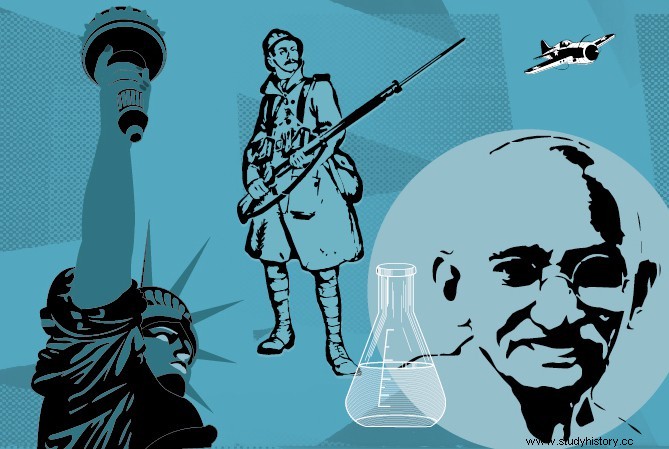
When in June 1950 North Korea invaded the South, it virtually conquered the entire peninsula. Unable to accept a new communist success after those of 1949 (the announcement of the Soviet atomic bomb and the seizure of power by Mao Zedong in China), the United States entrusted General MacArthur, the winner of the Pacific, with a counter-offensive which allows Seoul to be retaken in September. Thanks to the support of a UN contingent provided by 16 countries (including the United Kingdom and France), the North is practically occupied in November, before repelling the enemies in the South by the unofficial intervention of China. Determined to use the atomic weapon, MacArthur was recalled in April 1951. On the brink of the abyss, the world discovered the Cold War, which rested on the balance of terror.
The war of movement then turns into relentless trench warfare along the 38 e parallel, where heroism and barbarism intertwine. Only the "change of captains" (the departure of President Truman and the death of Stalin) made it possible to return to the status quo, sanctioned by the armistice of Panmunjom on July 27, 1953, still in force today.
Decimated by the military operations and by the civil war that followed, opposing Northerners and Southerners, collaborators and resisters, possessors and disadvantaged, and causing the death of 10% of the population, the Koreans recovered with the energy of despair. Forced statism in the North and unbridled capitalism in the South are opposite sides of the same obsession:do everything possible to avoid a new Korean war, which would amount to collective suicide.
